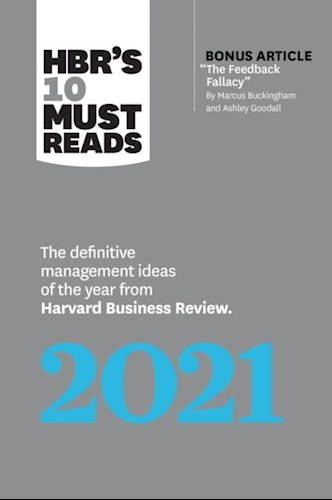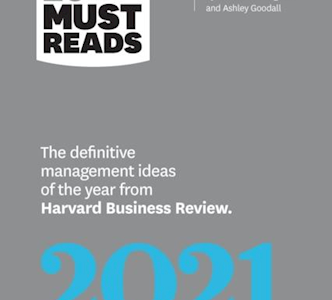
This post is a summation of and reflection on the article from HBR, The Feedback Fallacy. Written by Marcus Buckingham and Ashley Goodall
If you are interested in broadening your feedback horizon and review mechanisms, this article is for you. Below you can read my summary with my own twists and comments.

The premise of the article is that by examining the underlying question that drives most feedback mechanisms How can we help people thrive and excel? the discussion takes a different direction.
The article breaks this into three theories:
- Theory of the source of truth: Your truth is not the same as the perceived truth of the one you are giving feedback
- Theory of learning: The brain is wired to take a defensive stance when being attacked or criticized – this inhibits the intended learning aspect of the feedback
- Theory of excellence: Companies often compare people to one another, to make the feedback work easier for the giver. This doesn’t work because people are unique

The challenge
Feedback is called upon all the time, constantly, directly, critically and in real-time. Sharing what we think of someone elses performance and how they can improve, without due diligence, can, at worst hinder personal growth. “The start of your presentation went well, but it faltered at the end“
The reality:
- We are not as good at rating other peoples performance as we think we are
- Criticism inhibits the brains learning mechanisms.
- Excellence is idiosyncratic, can’t be defined in advance and isn’t the opposite of failure
The solution:
Help the subject see what’s working for them. Provide real-time personal experiences of the subjects performance. “Yes, more of that!”

So, how can you help people excel ?
Look for outcomes. I’ve been saying this in my teams for years – remember to celebrate the excellence in the team. We hit a milestone, celebrate it. We outperform a market average, communicate it downwards (you were going to do it upwards anyway, right). Someone in the team does something personally extraordinary, provide your perspective of the experience! Someone comes up with a clever solution, let the person know what your reaction was when you found out.
Here are some “Instead of – Try this”:
| Instead of | Try |
|---|---|
| Can I give you some feedback? | Here’s my reaction |
| Good job! | Here are three things that really worked for me. What was going through your head when you did them? |
| Here’s what you should do | Here’s what I would do |
| Here’s where you need to improve | Here’s what worked best for me, and here’s why |
| That didn’t really work | When you did x, I felt y or I didn’t get that |
| You need to improve your communication skills | Here’s exactly where you started to lose me |
| You need to be more responsive | when I don’t hear from you, I worry that we’re not on the same page |
| You lack strategic thinking | I’m struggling to understand your plan |
| You should do x [in response to a request for advice] | What do you feel your struggling with, and what have you done in the past that’s worked in a similar situation? |
We’re prone to interrupting someone who’s doing something wrong and telling them – which isn’t wrong – we just have to let go of the idea that this specific interrupt will help them learn. It possible, but its not likely.
When you see someone excel, make sure you do provide your reaction to them real-time. Its vital to do it on the spot, because they are in the zone and you can grant them the insight to recognize the zone next time they enter it. Perhaps they will even learn to enter the zone by choice.

If you are approached to present feedback, explore three angles together with the subject: The present, the past and the future. Start by asking for three things that’s working for the individual right now – this will trigger certain creative processes in the brain and will open the subject up to new ideas and solutions. These could relate to the underlying reason for the ask. Next, ask what has worked in the past. Most often, a solution to a prior problem can be applied to this new situation. And finally turn to the future and ask What do you already know you need to do? Operate as if the subject already knows the solution and help him or her realize it.
Try to move from the why to the what’s. This makes the conversation much more concrete.
We humans do not do well when someone whose intentions are unclear tells us where we stand, how good we “really” are, and what we must do to fix ourselves. We excel only when people who know us and care about us tell us what they experience and what they feel, and in particular when they see something within us that really works

I wrote this to make sure I gave the article its due consideration. I really like it because it hit home for me and confirmed some of my own home brew theories. I hope you enjoyed my summary. If you feel like discussing the article or the topic, feel free to reach out (LinkedIn or Twitter)
The Feedback Fallacy article was originally published in March-April 2019, written by Marcus Buckingham and Ashley Goodall

